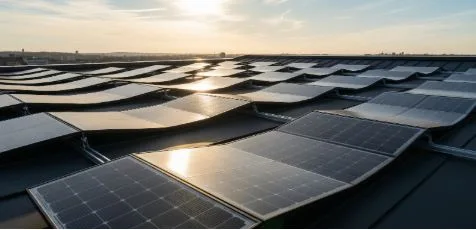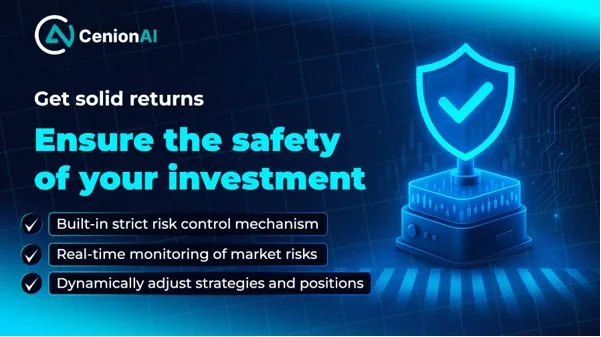Flexible Panels Vs. Rigid Solar Panels: What Are the Pros and Cons?
The world is moving towards clean energy solutions, and solar power has quickly become one of the most popular choices for both residential and commercial applications. Whether you want to power your home, take energy with you on the road, or reduce electricity bills, solar panels are now an affordable and reliable option. However, when exploring solar solutions, one of the most common questions people ask is whether they should go for flexible solar panels or traditional rigid solar panels. Both options work on the same basic principle—capturing sunlight and converting it into electricity—but they differ in design, durability, efficiency, and installation. Choosing the right type depends on your lifestyle, energy needs, and budget.
In this article, we’ll discuss in detail what are flexible solar panels, their pros and cons, how they compare with rigid panels, and why trusted brands like Renogy AU have become leaders in offering quality solar solutions. By the end, you’ll have a clear idea of which option is best for your situation.
What Are Flexible Solar Panels?
Before we get into comparisons, it’s important to understand what are flexible solar panels. Unlike traditional rigid panels, which are made with heavy glass and aluminum frames, flexible panels are designed with lightweight materials that allow them to bend and adapt to different surfaces. They often use thin-film solar cells or ultra-thin crystalline silicon layers, which make them lighter and more versatile.
These panels can usually bend up to 30°–45°, which makes them perfect for uneven or curved surfaces where rigid panels simply cannot fit. For example, flexible panels are widely used on boats, caravans, RVs, or even tents during camping trips. Their design allows them to be portable and convenient, which means you can take renewable energy with you anywhere you go.
Another key feature is the ease of installation. Instead of relying on heavy-duty brackets and complicated mounting systems, flexible solar panels can be attached using adhesives, Velcro, or simple fasteners. This reduces both installation time and cost, which is why they are a popular choice for people who want a DIY-friendly solar solution.
Pros of Flexible Solar Panels
One of the biggest advantages of flexible solar panels is their lightweight design. Unlike rigid panels that can be heavy and difficult to move, flexible panels are easy to transport and handle. This is especially useful for outdoor enthusiasts, van lifers, or anyone who needs to move their solar setup from place to place. The portability makes them ideal for temporary or mobile applications.
Another strong point is their ease of installation. Since they can be mounted on curved, irregular, or flat surfaces without needing bulky brackets, they save you both time and effort. You don’t always need professional help; many people install them themselves in just a few hours. This makes them attractive for beginners who are new to solar energy.
Flexibility is also a major advantage. Unlike rigid panels, which are limited to flat and strong surfaces, flexible panels can easily be fitted to boats, RV roofs, or uneven structures. Their thin, low-profile design makes them almost invisible once installed, giving you a sleek look without compromising functionality. For people who care about aesthetics, this is a big plus.
Cons of Flexible Solar Panels
While flexible panels are convenient, they do come with some drawbacks. One of the biggest disadvantages is lower efficiency. On average, flexible solar panels convert less sunlight into usable energy compared to rigid panels. This means you may need a larger surface area to generate the same power, which can be challenging if space is limited.
Another concern is their shorter lifespan. Since they don’t have the protection of tempered glass or an aluminum frame, they are more prone to scratches, wear, and damage from weather conditions. As a result, they typically last between 5–10 years, whereas rigid panels can easily last 20–25 years. This makes them less cost-effective in the long run.
Heat management is also an issue. Flexible panels lie flat on the surface they’re mounted on, which means there’s little airflow to help with cooling. When exposed to high temperatures, they can lose efficiency more quickly and degrade faster than rigid alternatives. For people living in hot climates, this can be a serious limitation.
Pros of Rigid Solar Panels
Rigid solar panels remain the most popular choice worldwide, and for good reason. Their biggest advantage is higher efficiency. These panels are designed to capture and convert more sunlight into electricity, meaning you get more energy from less space. This is especially important for homes or businesses with limited roof space.
Another key benefit is their durability and longevity. Made with tempered glass and strong aluminum frames, rigid panels are designed to withstand harsh weather conditions such as rain, snow, hail, and high winds. Many of them come with warranties of 20–25 years, ensuring reliable performance over decades.
From a financial perspective, rigid solar panels are also more cost-effective in the long run. Although their upfront installation might be higher, their durability and efficiency mean they deliver more power and savings over their lifespan. For households looking for a permanent and dependable energy source, rigid panels offer the best return on investment.
Another factor that makes them superior is better heat dissipation. Since rigid panels are mounted above the surface with brackets, there is enough airflow underneath to keep them cool. This prevents overheating and ensures consistent performance even in hot climates.
Cons of Rigid Solar Panels
Despite their many advantages, rigid solar panels also have some limitations. The most obvious one is that they are heavier and bulkier. The glass and metal construction adds weight, which makes them less suitable for mobile applications like boats, RVs, or temporary setups.
Installation is another challenge. Unlike flexible panels that can simply be glued or fastened, rigid solar panels require mounting brackets, drilling, and often professional installation. This adds extra time, effort, and cost. For people who want a quick, DIY-friendly setup, this can be a barrier.
Finally, rigid panels are limited in application. Since they are flat and inflexible, they cannot be installed on curved or irregular surfaces. This restricts their use mainly to rooftops, ground mounts, and flat surfaces where permanent installation is possible.
Flexible Solar Panels Vs. Rigid Solar Panels: Which Should You Choose?
When deciding between flexible and rigid solar panels, the choice comes down to your specific needs and lifestyle. If your main priority is portability, convenience, and a lightweight design, flexible solar panels are the better option. They are ideal for campers, RV travelers, or boat owners who need renewable energy on the go.
On the other hand, if you are looking for a long-term energy solution for your home, cabin, or business, rigid solar panels provide unmatched durability, efficiency, and cost-effectiveness. While they may cost more upfront and require professional installation, they deliver greater value over time.
Trusted brands like Renogy AU make the decision easier by offering both flexible and rigid solar panels. Whether you’re planning an off-grid adventure or setting up a permanent rooftop system, Renogy’s products are known for their high quality, performance, and reliability.
Final Thoughts
Both flexible and rigid solar panels have their place in the solar energy market. Flexible solar panels excel in mobility, ease of installation, and versatility, while rigid panels dominate in efficiency, durability, and long-term value. The best choice depends on your energy goals, available space, and how you plan to use the system.
If you want to enjoy the freedom of renewable energy while traveling, flexible panels are a great investment. But if you want a permanent setup with maximum power output and lifespan, rigid panels will serve you better. No matter which option you choose, investing in solar energy is a step toward reducing carbon emissions, cutting electricity costs, and embracing a sustainable future. With reliable providers like Renogy AU, you can be confident in getting the right solar solution to fit your unique needs.





